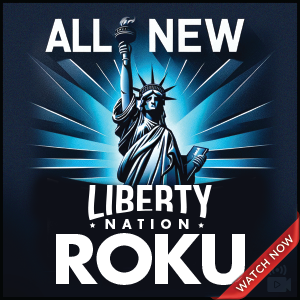As we consider all the things our tax money pays for, did you ever think we’d be shelling out millions of dollars to sponsor liberal podcasts? According to a New York Post exclusive, the federal government spent more than $8.5 million over the past four years to produce dozens of podcasts that promote progressive priorities.
Liberal Podcasts Backed by the Government
A report given to The Post by OpenTheBooks.com verified that at least 58 podcasts produced between February 2020 and September 2023 used grants and other federal funding to the tune of $8,535,556.

OpenTheBooks founder Adam Andrzejewski said, “We pay plenty of taxes – from income to inheritance to capital gains. But who knew we were paying a podcast tax?”
Not all federally funded podcasts are preaching liberal ideology, of course, but plenty are “left-wing ideological agitprop,” the report claimed. The National Endowment for the Humanities (NEH) and National Endowment for the Arts (NEA) were the primary funders and covered a plethora of topics such as history, art, literature, science, and religion.
“Because democracy demands wisdom, NEH serves and strengthens our republic by promoting excellence in the humanities and conveying the lessons of history to all Americans,” reads the NEH’s description of its mission. So, what kind of information was deemed appropriate and necessary? Here are some podcasts providing that “excellence” in American history and other topics, as pointed out by The Post:
Bedfellows Forever: This $370,000 podcast, funded by NEH and NEA, provides a history of “19th-century men who clasped hands, hugged, shared tears, wrote deeply intimate letters to one another, and shared beds,” according to the show’s website. Contributor Logan Scherer described the episode as a unique history of bedfellows who are “queerer … than any form of intimacy … in the twenty-first century.”
Queens Memory Season 2: Episode 4: This NEH-funded program cost $228,546 and is about the recent history of Queens during the pandemic. According to the website, this podcast provides “first-hand accounts of our Queens neighbors who have participated in the Black Lives Matter movement, their experiences at protests, and what we can do to keep the movement going.”
The State Department gave $20,000 to Fulbright Forward for its podcast, but not just to discuss the scholarship program offered. It also had a discussion on “Exploring Identity, Language Teaching, and the Impact of Whiteness.” The organization focuses on local and regional issues, including segments on LGBTQ+ legal history in Chile and organizing DEI advocacy in Taiwan, among other subjects.
Beginning Agrarians is a show the Department of Agriculture spent $46,353 to help produce, but it isn’t just about farming. It also includes information for those interested in “building a queer farmer community.”
The State Department gave $5,000 to another podcast by Purple Royale that “addresses issues and stories affecting trans and intersex lives in Zimbabwe,” according to the Apple Podcasts Preview page.
Taxpayers also are paying for programs directed toward children. The National Science Foundation funded $556,544 for COVID-related content from Brains On! that included “superheroes prepared to help us defeat the coronavirus: Sgt. Socially Distanced, the Masked Mentor, the Testmaster and the Vaxinator,” The Post related.
The NEH sponsored “The little pronoun that could” for $227,420 in an episode of the Subtitle podcast that discussed “a relatively new, gender-neutral pronoun [hen] which challenged Swedish grammar norms” and sparked a national conversation in Sweden about gender and equality.
And, finally, The Post revealed, “More than $171,000 is being spent to train journalists, artists and others how to produce their own podcasts in Brazil, Bulgaria and Yemen, while another $89,000 is going toward the same training in Rhode Island, Alaska and Texas.”
“Americans are accustomed to getting untold hours of free content through podcast platforms, and the federal government should stay out of the podcast content business,” Andrzejewski suggested. “It is a thinly veiled propaganda campaign used to hype silly notions or radical ideologies paid for by the American people.”

